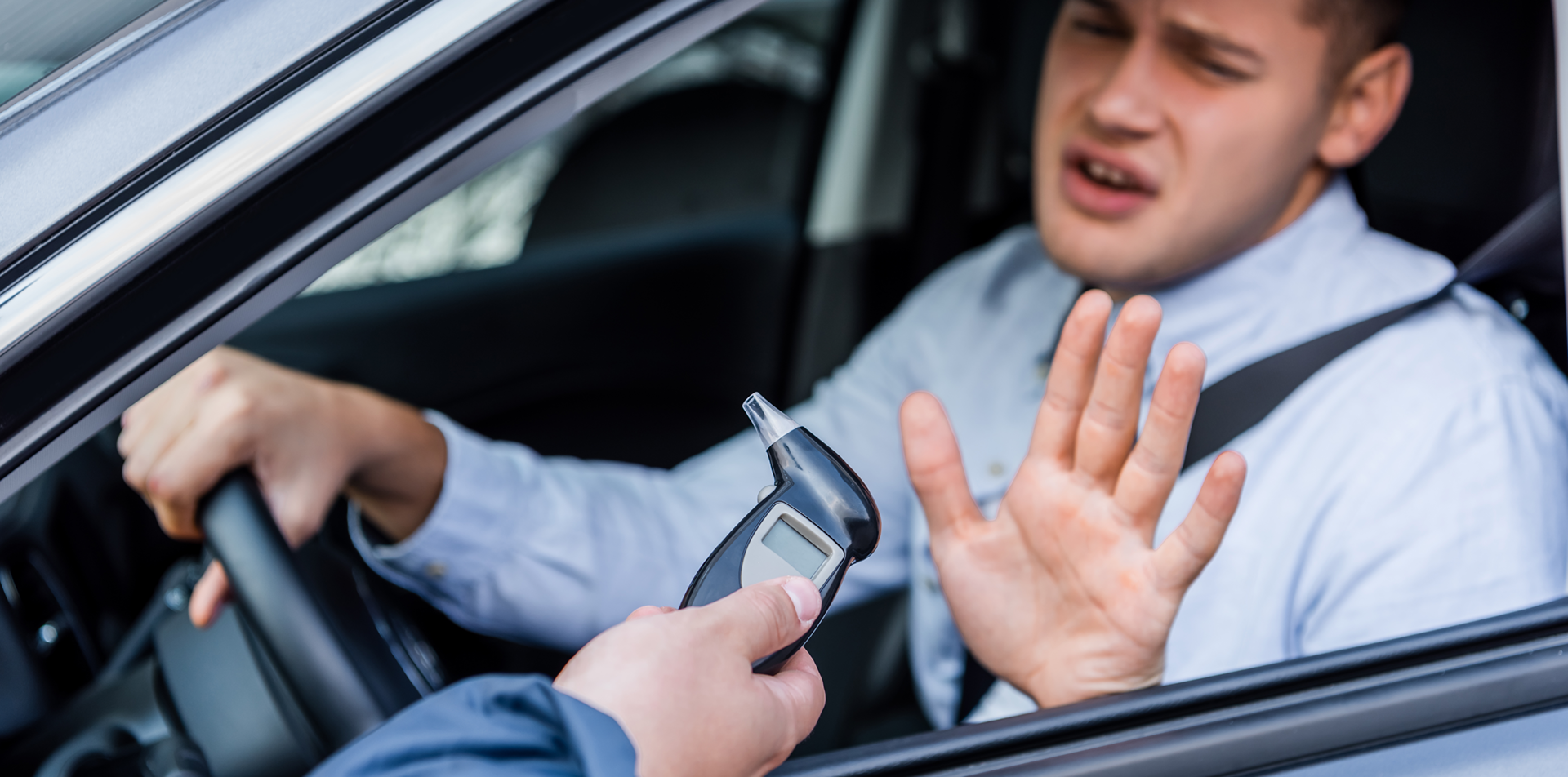

In a decision recently handed down by the New York State Court of Appeals, Matter of Pedro, 2022 N.Y. Slip Op. 00959, the Court has held that a defendant’s refusal to take a chemical test to determine their blood alcohol content (BAC) is admissible as evidence in a Department of Motor Vehicles (DMV) refusal hearing, regardless of whether that refusal fell under the “two-hour rule” as applicable for driving while intoxicated (DWI) cases. Prior to the decision, some Administrative Law Judges had held that evidence of a defendant’s refusal to submit to a BAC test was inadmissible in DMV hearings if the test was not administered within two hours of the defendant's arrest and refusal warnings were not issued in the same time frame.
Vehicle and Traffic Law §1194(2)(a)(1), which was enacted in 1973, states that “the [BAC] test must be administered within two hours after such person has been placed under arrest.” The Court notes however, that this rule applies only to criminal proceedings and not to administrative hearings. Refusal hearings held by the Department of Motor Vehicles would fall under the latter category.
In making their decision, the Court reasoned that the state law requiring a license revocation of anyone who refused to submit to a BAC chemical test was originally put in place in 1953 while the “two-hour rule” did not come into effect until 1973. The court also looked at legislative intent in making their decision, reasoning that “the legislature has continually strengthened drunk driving laws over the years with a very specific design to…ease the difficulty of proving the BAC of an intoxicated driver.” Finally, they also stated that just because citizens are provided with a statutorily made safeguard for refusing a chemical BAC test on the penalty of license revocation under the “two-hour rule”, that does not bestow a substantive right to refuse the test outside the two-hour limit.
A DMV refusal hearing is a proceeding a defendant in a DWI case will face if they are alleged to have refused to take a DWI chemical test, most frequently, a breath test. A DMV refusal hearing is a parallel proceeding to the criminal matter and provides both opportunities for a criminal defendant and pitfalls in the form of further licensing sanctions if one is not prepared for this hearing. It is wholly separate and distinct from the criminal matter.
If you or someone you know has been charged with DWI, please reach out to our firm.

Happy Labor Day! It's a day to honor every worker and celebrate the collective strength of every one of us. We at Flink Maswick Law wish everyone a restful day with family and friends! We will be closed for the Monday, September 2, 2024 holiday.


As a parent, your children are most likely your biggest concern amid a divorce action. When in such a tough situation, you may wonder what your options are for custody and what the court may look at when determining such an important aspect. To start, custody can be generally defined as the parent’s rights to caring for and raising their child or children. The standard the Court looks to when determining child custody is the best interest of the child. The Court is to approach each situation by looking at the “totality of circumstances” to see what is best for the child and are given a broad discretion in doing so. Common factors that play into this are the child’s needs, the environment of each parent, the parent’s mental health, the relationship between the child and the parent, education, and the parent’s finances. The types of child custody come with different shares of responsibility and rights between the parents. Legal custody refers to the parent or parents who has or have the right to make decisions about the upbringing of the child, such as education, religion, medical needs, etc. Physical custody pertains to where the child remains with and is cared for by. Both legal and physical custody are most often held by the parents as sole (1 parent) or joint custody (both parents). Sole custody grants one parent the right to have physical custody of the child. The child resides with this parent and can solely make decisions on the child’s upbringing and welfare. This parent is typically referred to as the “custodian” of the child. The other parent may be granted visitation, which the custodian parent must allow and abide by. Joint custody can be viewed as both parents sharing the responsibility to make major decisions regarding the child’s upbringing. This can be broken down into physical joint custody or legal joint custody. Physical joint custody refers to the parents splitting time with the child, while legal joint custody refers to the collaboration between the parents on how the child is raised and cared for. While sole and joint custody are different in definition, a Court may impose that the parent granted sole custody must consult with the other parent and decide certain aspects of the child’s life such as medical care, religion, and education, therefore blending sole and joint custody. Please contact our offices and speak with our attorneys if you need assistance with one of these matters. Please always consult an attorney for specific advice, as this article is not intended provide specific advice regarding your matter.
The attorneys at Flink Maswick Law PLLC frequently defend those charged with alcohol-based driving offenses. Questions we hear the most, especially for those charged with an alcohol-based driving offense for the first time, are about the differences in the charges and resulting penalties for those convicted of Driving While Ability Impaired (DWAI), Driving While Intoxicated (DWI), and Aggravated Driving While Intoxicated (Aggravated DWI). One of the major determining factors with respect to what the driver will be charged with between these three offenses is the blood alcohol content (BAC) of the driver, meaning the amount of alcohol the driver has consumed. DWAI can be charged when a driver is alleged to be operating a motor vehicle on a roadway while impaired by consuming alcohol. DWI can be charged when a driver is alleged to be operating a motor vehicle on a roadway with a blood alcohol content of .08 or more. It can also be alleged against those that are allegedly operating their vehicle in an intoxicated condition but refuse to take a blood or breath test. Aggravated DWI can be charged when a driver is alleged to be operating a motor vehicle on a roadway with a blood alcohol content of .18 or more. While DWAI, DWI, and Aggravated DWI are all violations of New York Vehicle and Traffic Law §1192 (though different subdivisions of the law), they each have a different impact on first time offenders for those that are convicted. This is an overview of the potential consequences of each of these charges for first time offenders and is not to be considered a substitute for legal advice. Particular cases and situations should be reviewed with an attorney, as many factors not enumerated here, such as but not limited to having a commercial driver’s license, being a pistol permit holder, having prior convictions, having an immigration status other than permanent, being a resident of a different state other than New York or having a certain profession may cause differing and additional consequences for a defendant. Always seek counsel of your choosing when charged with an alcohol-based driving offense in New York State. The below is of general information for those charged with a first time offense in New York. A DWAI, while just a violation (meaning not a crime, not a misdemeanor or felony), includes several repercussions, including: fines/fees ranging from $300.00 to $500.00 plus a $260.00 surcharge; a 90-day license suspension; possible registration suspension; a Driver Responsibility Assessment for three years at a cost of $250.00 each year to the New York State Department of Motor Vehicles; and likely required attendance at a Victim Impact Panel. The driver will also most likely need to obtain an alcohol and substance abuse evaluation from an OASAS-certified provider and successfully complete any recommended treatment. In most instances, the driver is eligible for a conditional license upon registering for the Impaired Driver Program. In addition to the more moderate consequences than DWI or Aggravated DWI, those convicted of DWAI can continue to represent that they do not have criminal record because it is a violation (so long as they have no other convictions to criminal charges in their past or concurrent with this matter) and are typically not required to install an ignition interlock device in their vehicle. A DWI conviction is a misdemeanor in New York for first time offenders. A first offender can be subject to a fine ranging from $500.00 to $1,000.00 plus a $400.00 surcharge and/or 364 days in jail, probation, a six-month license revocation, possible registration revocation, a Driver Responsibility Assessment for three years at a cost of $250.00 each year to the New York State Department of Motor Vehicles; likely required attendance at a Victim Impact Panel and the installation of an ignition interlock device in all vehicles owned by the driver for at least six months and to pay for that installation and maintenance. The driver will also most likely need to obtain an alcohol and substance abuse evaluation from an OASAS-certified provider and successfully complete any recommended treatment. In most instances, the driver is eligible for a conditional license upon registering for the Impaired Driver Program. DWI is a crime and if convicted, one will have a criminal record. An Aggravated DWI conviction, for first offenders, is a misdemeanor with possible harsher consequences than a DWI. If convicted of Aggravated DWI, a driver is then subject to a fine ranging from $1,000.00 to $2,500.00 and a $400.00 surcharge and/or 364 days in jail, probation, a one-year license revocation, possible registration revocation for one year, a Driver Responsibility Assessment for three years at a cost of $250.00 each year to the New York State Department of Motor Vehicles; likely required attendance at a Victim Impact Panel and the installation of an ignition interlock device in all vehicles owned by the driver for at least six months and to pay for that installation and maintenance. The driver will also most likely need to obtain an alcohol and substance abuse evaluation from an OASAS-certified provider and successfully complete any recommended treatment. In most instances, the driver is eligible for a conditional license upon registering for the Impaired Driver Program. Aggravated DWI is a crime and if convicted, one will have a criminal record. If you find yourself charged with a vehicle and traffic matter, please feel free to contact either of our offices to speak with our attorneys and find out if we can assist.